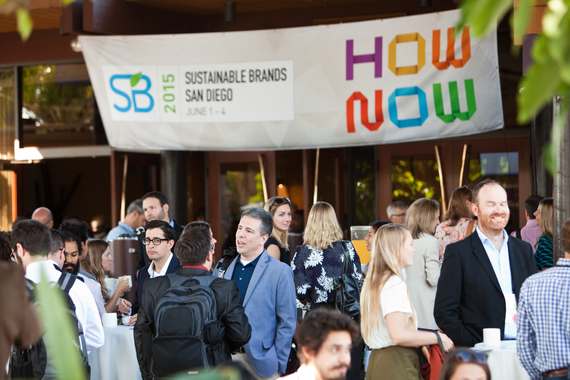
Credit: sustainablebrands.com
The Sustainable Brands '15 theme, "How Now," focused on how companies can successfully innovate their brands for sustainability now.
Recently, at the 2015 Sustainable Brands Conference, I was struck by something Harvard Business Review contributor and the author of "What Great Brands Do," Denise Yohn, showcased on the main stage. Her visual read: "A BRAND IS WHAT YOU DO, AND HOW YOU DO IT." For me, Yohn's statement highlights the critical connection between a company's purpose and its brand. Too often brand is confused with logo. So what does your brand represent?
Conferences like the Boston College Conference and Sustainable Brands represent a new opportunity each year to learn and reflect on how we can continually strive for leadership in sustainability. How do we go beyond the standard operations--expected activities like managing energy efficiency and reducing waste--to help sustainability break through and deliver real business impact and support a healthier world? I will share a few of my takeaways here, and you can listen to more from others who attended the conference in this Triple Pundit video series.
- Stop trying to sell sustainability. Focus investments and communications on creating the best products and services, and let sustainability be the differentiator. Consumers buy Method products not because the company embeds sustainability, but because its products actually work and clean effectively- in addition to being sustainable. Sustainability doesn't compensate for poor quality or ineffective products.
As a pharmaceutical company, driven by our commitment to patients, we bring innovative products, services and solutions to people throughout the world. For us, sustainability and innovation are linked.
We are exploring new ways to address sustainability for our people, the planet and our business. For example, our flagship JLABS San Diego facility is a ground-breaking incubator that provides big company resources for emerging healthcare companies. By encouraging new companies, nurturing health innovation and investing in the local community we support business and healthcare sustainability.
Together, we - as a business community - can address the real, actionable issues of sustainability. Conferences - like Sustainable Brands - help us learn about best practices, groundbreaking trends, and provide inspiration. But it is only by taking action on purpose-driven issues that change will occur and sustainability will be embedded in everyday business thinking. For a brand is about what you do, and not what you say.
So what does your brand do?
